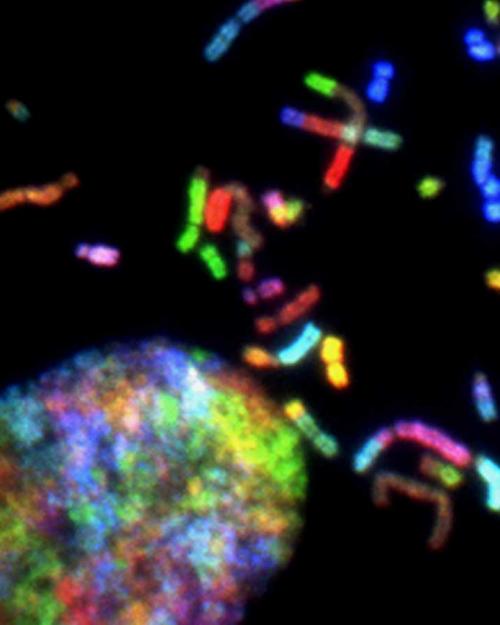RNA plays several distinct roles in promoting or suppressing the expression of particular genes. In particular, certain RNA strands, called enhancer RNA (eRNA), are thought to promote gene expression rather than coding for protein production themselves. The regulation of RNA and its role in human disease are not fully understood. To identify factors that alter RNA expression, it is critical to map where RNA regulation is encoded on the genome as well as where regulation takes place structurally within a cell.
Hojoong Kwak, Molecular Biology and Genetics, is using high-resolution RNA analysis to locate mechanisms that regulate gene expression. In the first of this two-part project, the Kwak lab is defining high-resolution maps of genetic sequences that enhance gene expression in blood immune cells using a novel technique based on eRNA. The second part of the project will focus on physical structures within cells, such as membraneless organelles called stress granules, that may serve to promote or retard RNA activity and decay. To explore critical mechanisms and checkpoints that affect RNA lifespan, the Kwak lab will dissect the specificity of RNA processing in stress granules in high temporal resolution and explore their linkage to the dysregulation of disease-associated genes.
This research will apply high-resolution maps of RNA regulation in human immune cells to the study of metabolic diseases and cancer immunotherapy. The outcomes could lead to the discovery of novel target genes and disease mechanisms and provide a foundation for further efforts to advance precision medicine for the treatment of human disease.
NIH Award Number: 1R35GM142979-01




